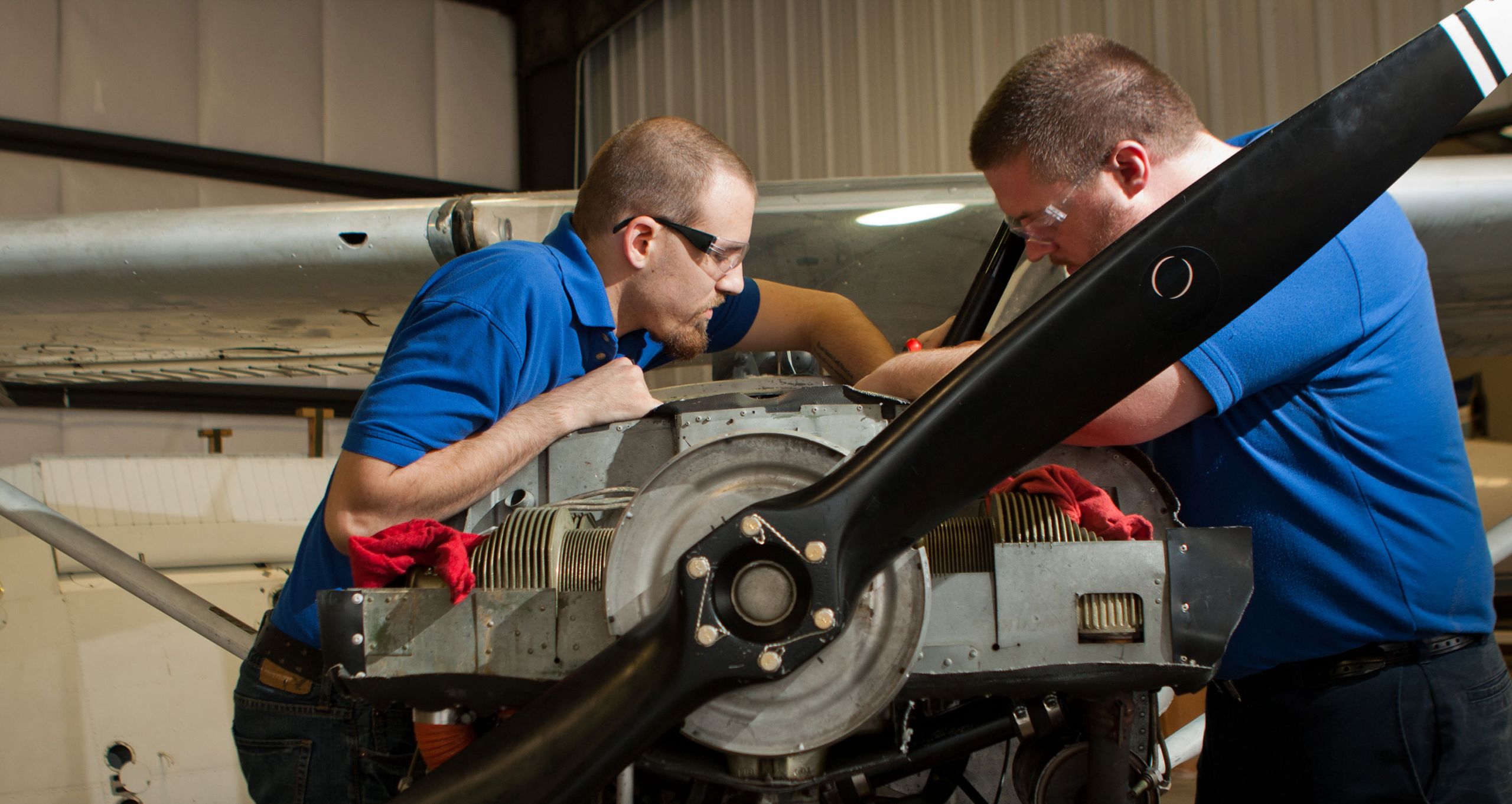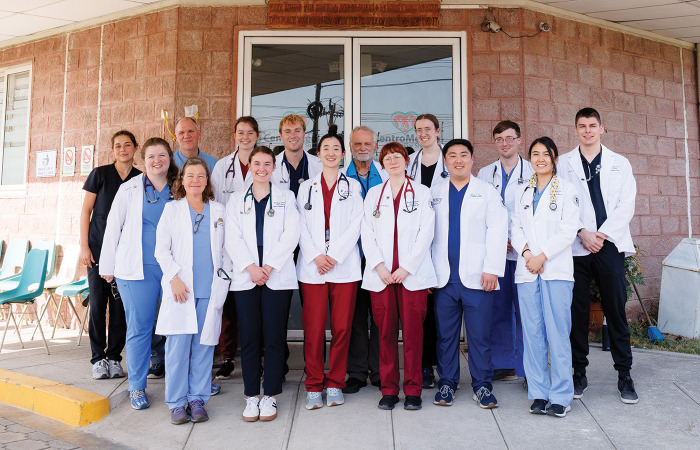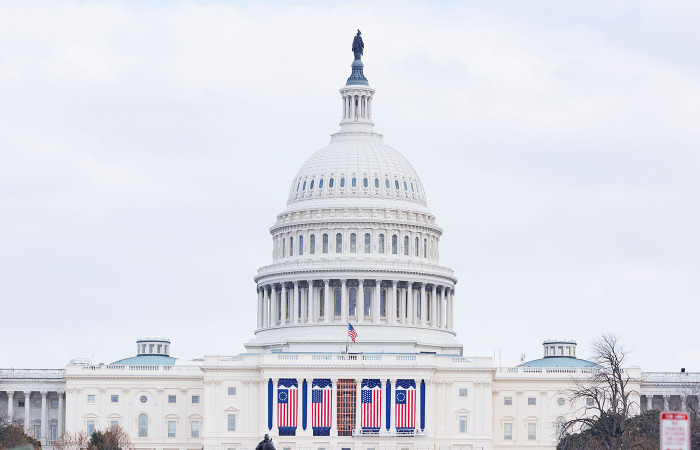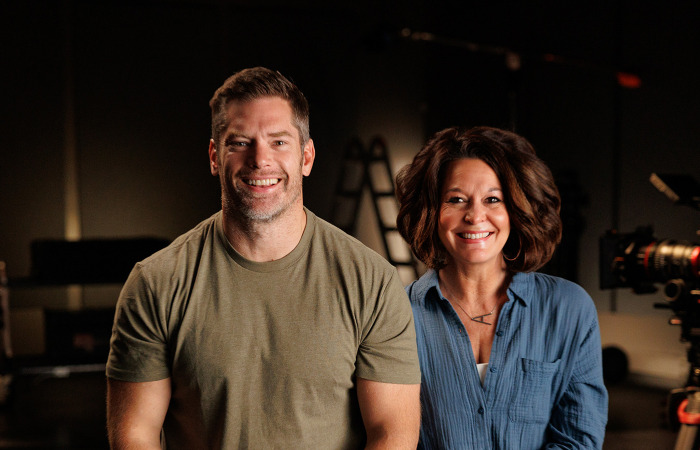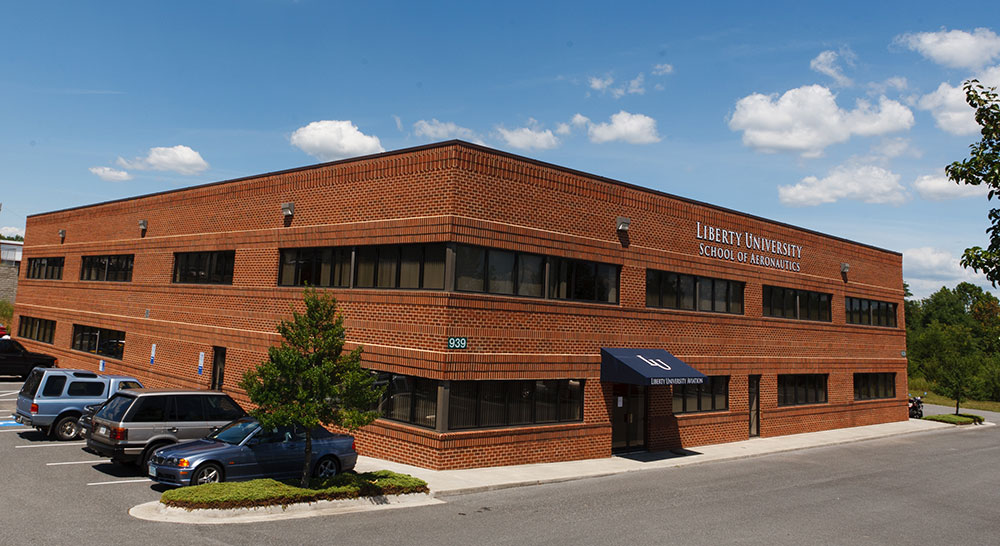 Liberty University School of Aeronautics students now have their own campus.
Liberty University School of Aeronautics students now have their own campus.
It was the vision of Dean Dave Young just two years ago, when the university looked to expand its aviation facilities after purchasing a charter aviation jet center at Lynchburg Regional Airport, just five minutes from Liberty’s main campus.
Soon thereafter, a 24,000-square-foot building adjacent to the property became available for purchase and opened as the university’s Aviation Academic Center last fall. The university also acquired a nearby building last year for its aircraft maintenance technician program — the School of Aeronautics A&P Center. Together with the flight operations center (now named Freedom Aviation and including a fully functional aviation business), the three facilities total close to 100,000 square feet.
“We’ve been very blessed in many ways,” Young said.
Freedom Aviation provides transportation for many of Liberty’s special guests, including convocation and commencement speakers.
From its humble beginnings of four students in 2002, Liberty University School of Aeronautics has expanded to about 400 students training to become missionary pilots, commercial pilots, flight attendants, aircraft technicians and other professionals in aeronautics-related fields.
The School of Aeronautics is the largest flight school in Virginia and one of the two largest Christian aviation programs in the United States.
During the school year, the program is responsible for about 55 flights out of Lynchburg every day. This spring, 178 students will take to the skies three times a week.
Bryan Strathdee graduated in May 2011 with a Bachelor of Science degree in Commercial Aviation from Liberty and is currently a flight instructor at the school, with a long-term goal of following in some of his fellow alumni’s shoes and becoming a pilot for a major airline.
“I believe Liberty has been a huge help in preparing me for an aviation career,” he said. “A number of the instructors have a large amount of experience in very different areas of aviation and are an excellent source of information about the aviation industry.”
One of the school’s recent successes is the Aviation Maintenance Technician Program (AMT), a one-year program that allows students to get hands-on experience working on airplanes. Originally started to meet the demands of missionary pilots, students earn their maintenance license with both airframe and powerplant ratings and are qualified to work on small single engine aircraft to airliners and helicopters in corporate and commercial aviation. Now in its third year, the program has expanded from one class to three, with 24 students training and performing aircraft repairs eight hours a day, five days a week at the new A&P Center.
“Statistics are that only 30 percent of students that enroll in a program like this graduate, but we’ve had almost 100 percent since we’ve started because we have a different mission,” said Bob Howell, AMT chair. “We take seriously the mentoring side of this and the spiritual development of the students, so we attract a higher quality student applicant, and consequently we’ve had a high level of success graduating students and licensing students.”
Job placement is 100 percent for graduates of this program, according to Ernie Rogers, Associate Dean for Academics at Liberty University School of Aeronautics.
“The job openings are getting so heavy, all these companies are coming to us now and offering jobs to students upon graduation,” he said. “It’s going to be that way for many years now. Industry experts are expecting 650,000 new aviation maintenance technicians to be hired in the next 20 years.”
Also new to the School of Aeronautics is a concentration in unmanned aerial systems, launched last fall.
“We think of them as drones,” Young said, adding that the program allows them to keep up with the latest technological advancements in the aviation industry.
The school is currently partnering with Liberty’s School of Engineering to create its own system.
Liberty University School of Aeronautics offers a Bachelor of Science in Aeronautics, with majors in Commercial/Corporate Aviation, Military Aviation, Missions Aviation and Unmanned Aerial Systems (UAS). An aeronautics minor is also available, along with an associate’s degree in flight attendant training.
